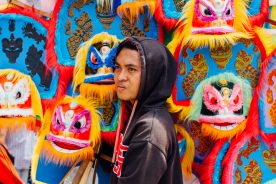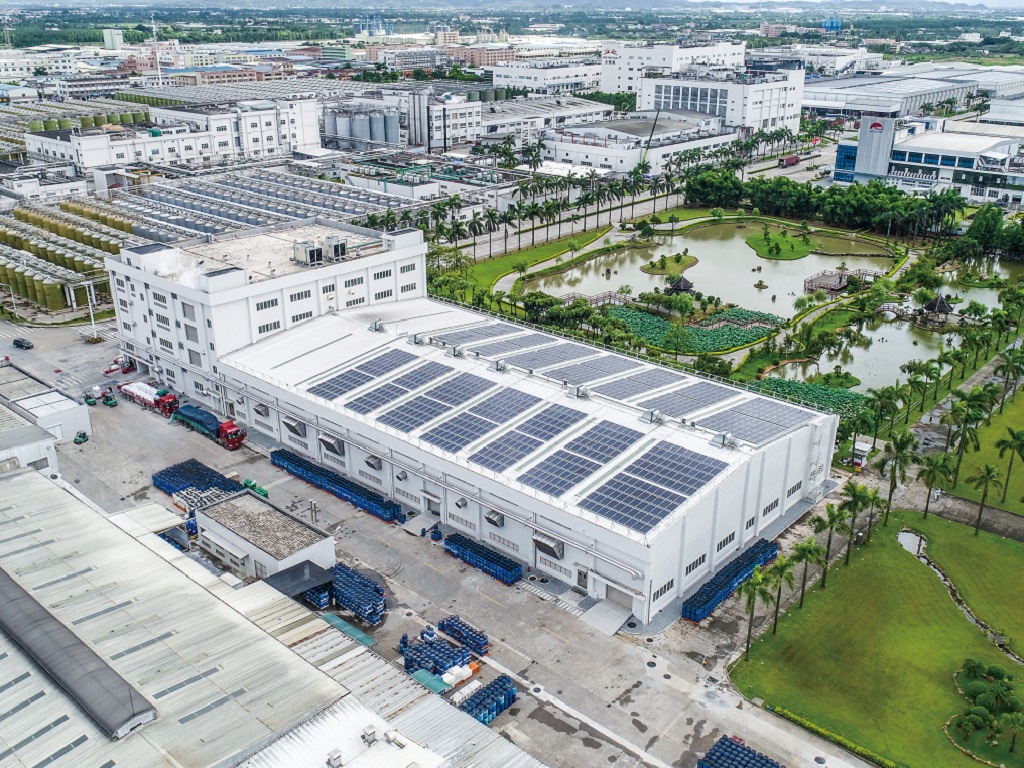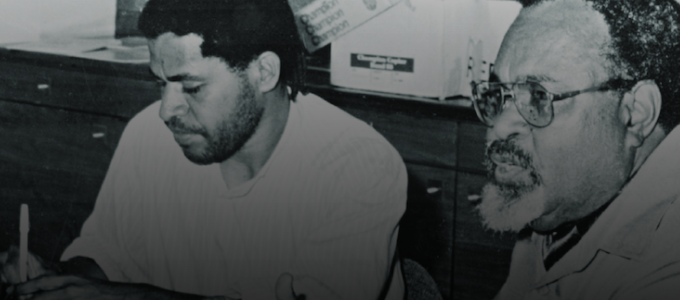As American economic power continues to decline, a division has emerged within the U.S. political establishment as to which of its designated adversaries is to blame for the country’s woes — Russia, or China. The dispute came to a head during each of the last two presidential elections, with the Democratic Party first blaming Moscow for Hillary Clinton’s shocking defeat in 2016 over unproven “election meddling” by the Kremlin. After Joe Biden’s equally controversial victory over Donald Trump this past November, the GOP has retaliated by portraying the 46th president as “soft on China” just as their counterparts drew critical attention to Trump’s alleged ties to Russia — even though both men have taken tough stances toward each respective country. As a result of this neo-McCarthyist political atmosphere, détente has been criminalized. In order to understand what is driving this interwar between factions of the Anglo-American elite amid the rise of China and Russia on the world stage, a revisiting of the history of relations between the three nations is necessary.
From the first millennia until the 19th century, China was one of the world’s foremost economic powers. Today, the People’s Republic has largely recaptured that position and by the end of the decade is expected to overtake the U.S. as the world’s largest economy, a gain that may be expedited by the post-pandemic U.S. recession compared with China’s rapid recovery. Unfortunately, the Western attitude toward China remains stuck in the ‘century of humiliation’ where from the mid-19th century until the Chinese Revolution in 1949, it was successively raped and plundered by the Western, Japanese, and Russian imperial powers. The reason the English-speaking world clings to this backwards view is because apart from that centennial period, the West has always been second place to China as the world’s most distinguished country providing the global standard in infrastructure, technology, governance, agriculture, and economic development. Even at the peak of the Roman Empire, the Han dynasty where the ancient Silk Road began was vastly larger in territory and population.
For two consecutive years in the early 1930s, the best-selling fiction book in the U.S. was Pearl S. Buck’s The Good Earth which depicted the extreme poverty and famine of rural peasant life in pre-revolutionary China. In many respects, the picture of China in the Western mind remains a composite impression from Buck’s Nobel Prize-winning novel. The former Chinese Empire underwent its ‘hundred years of humiliation’ after suffering a series of military defeats in the Opium Wars which funded Western industrialization, where the ceding of territories and war reparations in unequal treaties left China subjugated as the “sick man of Asia.” Like Russia which lagged behind Europe after the Industrial Revolution until the Soviet centralized plans of the 1930s, China was able to transform its primarily agricultural economy into an industrial giant after its communist revolution in 1949. However, it was only a short time until the Sino-Soviet split in 1961 when China began to forge its own path in one of the most widely misunderstood geopolitical developments of the Cold War.
In 1956, Soviet Premier Nikita Khrushchev gave what is commonly known as his “Secret Speech” to the 20th Congress of the Communist Party of the Soviet Union, a report entitled “On the Cult of Personality and Its Consequences”, where the Ukrainian-born politician denounced the excesses of his deceased predecessor, Joseph Stalin. The news of the shocking address to the Politburo did not just further polarize an international communist movement already divided between Trotskyists and the Comintern but had geopolitical consequences beyond its intended purpose of accommodating Washington to deescalate the arms race. At first, China took a relatively neutral stance toward the Soviet reforms during its Hundred Flowers Campaign, even as Mao encouraged the USSR to put down the 1956 counter-revolution in Hungary.
The real turning point in Sino-Soviet relations came when the bureaucratic placation of the Khrushchev Thaw began to discourage movements in the developing world living under Western-backed dictatorships from taking up arms in revolutionary struggle. With the support of Enver Hoxha and Albania, China began to fiercely criticize de-Stalinization and accused the Soviet Union of “revisionism” for prioritizing world peace and preventing a nuclear war over support for national liberation movements, becoming the de facto leader of ‘Third Worldism’ against Western imperialism. Moscow reciprocated by freezing aid to China which greatly damaged its economy and relations soured between the world’s two biggest socialist countries, transforming the the Cold War into a tri-polar conflict already multifaceted with the Non-Aligned Movement led by Yugoslavia after Josep Broz Tito’s falling out with Stalin.
As the PRC continued to break from what Mao viewed as the USSR’s deviation from Marxism-Leninism, China went down the primrose path of the Cultural Revolution during the 1960s amid the rise of the Gang of Four faction who took the anti-Soviet policies a step further by condemning the USSR as “social imperialist” and an even greater threat than the West. This led to several huge missteps in foreign policy and a complete betrayal of internationalism, as China aligned with the U.S. in support of UNITA against the MPLA in the Angolan civil war, the CIA-backed Khmer Rouge genocidaires in Cambodia against Vietnam, and the fascist Augusto Pinochet regime in Chile. After years of international isolation, U.S. President Richard Nixon and his war criminal Secretary of State Henry Kissinger were received as guests in 1972. Despite the initial reasons for the Sino-Soviet split, it was ironically the Soviet Union which ended up carrying the mantle of national liberation as the USSR backed numerous socialist revolutions in the global south while China sided with imperialism.
In hindsight, the Cold War’s conclusion with the demise of the USSR was arguably an inevitable result of the Sino-Soviet split. Ultimately, mistakes were made by both sides that are recognized by the two countries today, as can be seen in the Communist Party of the Russian Federation’s negative historical view of Khrushchev and the denunciation of the Cultural Revolution and Gang of Four by the CPC (not “CCP”). In fact, China has since even apologized to Angola for its support of Jonas Savimbi. Nevertheless, the break in political relations with Moscow also set the process in motion for China to develop its own interpretation of Marxism-Leninism that diverged from the Soviet model and eventually allowed a level of private enterprise which never occurred under the USSR, including during the short-lived New Economic Policy of the 1920s. If truth be told, this may have been the very thing which prevented China from meeting the same fate.
Starting in 1978, China began opening its economy to domestic private enterprise and even foreign capital, but with the ruling party and government retaining final authority over both the private and public sectors. The result of implementing market-oriented reforms while maintaining mostly state ownership of industry was the economic marvel we see today, where China has since become the ‘world’s factory’ and global manufacturing powerhouse. For four decades, China’s real gross domestic product growth has averaged nearly ten percent every year and almost a billion people have been lifted out of poverty, but with capital never rising above the political authority of the CPC. Unfortunately, the success of Deng Xiaoping’s reform of the Chinese socialist system was not replicated by perestroika (“restructuring”) in the USSR under the leadership of Mikhail Gorbachev who completely failed to revive the Soviet economy and eventually oversaw its dissolution in 1991.
During the 1990s, Russia underwent total collapse as its formerly planned enterprises were dismantled by the same neoliberal policies to which Margaret Thatcher once phrased “there is no alternative” (TINA). The restoration of capitalism sharply increased poverty and unemployment while mortality fell by an entire decade under IMF-imposed ‘shock therapy’ which created an obscenely wealthy new class of Russian “oligarchs” overnight. So much so, the fortunes of the Semibankarschina (“seven bankers”) were compared to the boyars of tsarist nobility in previous centuries. This comprador elite also controlled most of the country’s media while funding the election campaigns of pro-Western President Boris Yeltsin who transformed the previously centralized economy into a free market system. That was until his notorious successor assumed power and brought the energy sector back under control of the Russian state which restored wages, reduced poverty, and expelled corrupt foreign investors like Bill Browder. Needless to say, the U.S. was not pleased by Vladimir Putin’s successful revival of the Russian economy because the U.S. already faced a geopolitical contender in China.
As China has been the world’s ascending economic superpower through its unique mixture of private and state-owned enterprises, the U.S. economy has shrunk as trade liberalization and globalization de-industrialized the Rust Belt. Simultaneously, the expense of the military budget has grown so gargantuan that it can’t be audited while rash imperialist wars in the Middle East following 9/11 marked the beginning of the end for American hegemony. In 2016, Donald Trump rose to power railing against the political establishment over its “endless wars” and anti-worker free trade deals, abandoning the proposed Trans-Pacific Partnership (TPP) on his first day in office and imposing protectionist tariffs which kickstarted a U.S.-China trade war. Unfortunately, any efforts to return U.S. productive power outsourced to China by multinationals and scale back American empire-building were destined to fail.
Trump was also politically persecuted by the Democrats and the intelligence community for daring to embrace détente with Moscow as a candidate and spent his entire administration trying to appease the deep state in Washington with little result. Oddly enough, it was reportedly none other than Henry Kissinger who encouraged Trump to ease the strained relations with Russia as a strategy to contain China, the traditional enemy he once convinced Richard Nixon to make steps toward peace with. The GOP, representing the interests of the military-industrial complex, has reciprocated the anti-Russia hysteria by accusing incumbent Joe Biden of being weak on China, even though the previous Obama-Biden administration presided over an unprecedented military buildup in the Pacific as part of the U.S. “pivot to Asia.” The views of constituents from both parties also seem to fall on partisan lines, as indicated in a recent Gallup poll where only 16% of Democrats held a positive view of Russia and a mere 10% of Republicans regard China favorably.
The rise of Russia and China on the global stage presents such a threat to Washington’s full spectrum dominance that the head of U.S. Strategic Command, Admiral Charles Richard, recently warned of the very real possibility of a nuclear war in the future with both countries. Under the administration of Xi Jinping, China has reshaped the geopolitical order with its ambitious Belt and Road Initiative (BRI) infrastructure project, also known as the New Silk Road. At the same time, Russia has reintegrated several of the former Soviet republics with the formation of the Eurasian Economic Union (EAEU). Conceivably, the return of Russia to world politics has the potential to transform the sphere of competition between the U.S. and China into a multipolar plane where the balance of power can shift toward a more stable geopolitical landscape in the long run. Nevertheless, the challenge made by the Xi-Putin partnership to the dominion of Western capital is the basis for the bellicosity toward Eurasia by the U.S., as is their joining forces to repair the Sino-Russian political relations broken decades ago.
When the Soviet Union dissolved, the tentative US–China alliance effectively ended and Sino-Russian rapprochement began. But what prevented the PRC from going the same route as the Eastern Bloc? Why did Deng succeed and Gorbachev fail? After all, the 1989 Tiananmen Square protests were concurrent with the numerous ‘Color Revolutions’ behind the Iron Curtain, even though the Western narrative about the June Fourth Incident omits that among the “pro-democracy” demonstrators were many Maoists who considered Deng’s market reforms a betrayal of Chinese socialism. As it happens, Xi Jinping himself correctly identified one of the main reasons why the USSR dissolved in a 2013 speech:
Why did the Soviet Union disintegrate? Why did the Soviet Communist Party fall from power? An important reason was that the struggle in the field of ideology was extremely intense, completely negating the history of the Soviet Union, negating the history of the Soviet Communist Party, negating Lenin, negating Stalin, creating historical nihilism and confused thinking. Party organs at all levels had lost their functions, the military was no longer under Party leadership. In the end, the Soviet Communist Party, a great party, was scattered, the Soviet Union, a great socialist country, disintegrated. This is a cautionary tale!
Xi is correct in that China, unlike the Soviet Union, never made the crucial error of playing into the hands of the West through the condemnation of its own history as Khrushchev did in his “Secret Speech.” Despite the fact that the report by the Soviet leader contained demonstrable falsehoods such as the absurd claim that Stalin, one of Russia’s most formidable bank robbers as a revolutionary, was a coward deathly afraid of the Nazi invasion as it neared Moscow during WWII, the self-serving speech split the international communist movement and laid the internal groundwork for the USSR’s eventual downfall. As for the economic reasons for the different outcomes, the late Marxist historian Domenico Losurdo explained:
If we analyse the first 15 years of Soviet Russia, we see three social experiments. The first experiment, based on the equal distribution of poverty, suggests the “universal asceticism” and “rough egalitarianism” criticised by the Communist Manifesto. We can now understand the decision to move to Lenin’s New Economic Policy, which was often interpreted as a return to capitalism. The increasing threat of war pushed Stalin into sweeping economic collectivisation. The third experiment produced a very advanced welfare state but ended in failure: in the last years of the Soviet Union, it was characterised by mass absenteeism and disengagement in the workplace; this stalled productivity, and it became hard to find any application of the principle that Marx said should preside over socialism — remuneration according to the quantity and quality of work delivered. The history of China is different: Mao believed that, unlike “political capital,” the economic capital of the bourgeoisie should not be subject to total expropriation, at least until it can serve the development of the national economy. After the tragedy of the Great Leap Forward and the Cultural Revolution, it took Deng Xiaoping to emphasise that socialism implies the development of the productive forces. Chinese market socialism has achieved extraordinary success.
Since China’s economic upswing has been simultaneous with the downturn of American capitalism, it has left the U.S. with only one option but to equate the PRC with its own crumbling system. Sadly, in most instances it is the Eurocentric pseudo-left which has parroted the propaganda of Western think tanks that China is “state capitalist” and even “imperialist.” This also means that its unparalleled economic gains must therefore be a result of capitalism, not state planning, which is another fabrication. Has there ever been a clearer case of neocolonial projection than the baseless accusation of “dept-trap diplomacy” hurled at China’s BRI by the West? It is true that China seeks to profit in the global south, but based on terms of mutual benefit for developing nations previously plundered by Western financial institutions which actually impose debt slavery on low income countries. In reality, Beijing is only guilty of offering a preferable win-win alternative to states exploited under the yoke of imperialism. Once upon a time, the U.S. itself envisioned a peaceful world of mutual cooperation and trade under Franklin Delano Roosevelt’s Good Neighbor Policy, a forgotten legacy that Xi’s BRI is fulfilling.
None of this is to say China is undeserving of any criticism. To the contrary, its paradoxes are as deep as its achievements and it would be naive to think that Chinese capital, if left unchecked, doesn’t have the potential to be as predatory as the Western variety. Free enterprise is so inherently unstable that its destructive nature will be impossible to contain forever even by a party like the CPC and must be disassembled eventually. Without the retention of a large state sector maintaining vital infrastructure and public services, the market relations in China would wreak havoc as it did in post-Soviet Russia. Not to mention, the biggest progress made by the PRC was in the years prior to the pro-market reforms and ultimately served as the foundation upon which “socialism with Chinese characteristics” is able to thrive. The lesson of the fall of the USSR is that even a society capable of the most incredible human advancements is not invincible to a market environment. The Soviet Union withstood an invasion by more than a dozen Allied nations during the Russian Civil War and an onslaught by the Nazi war machine in WWII, but succumbed to perestroika. While Russia may be under the free market, both nations are a threat to Western capital because they represent a new win-win cooperative model in international relations and an end to American unipolarity.
The post America’s National Humiliation by Eurasia: Uncle Sam is ‘Sick Man’ of the West first appeared on Dissident Voice.This post was originally published on Dissident Voice.


















